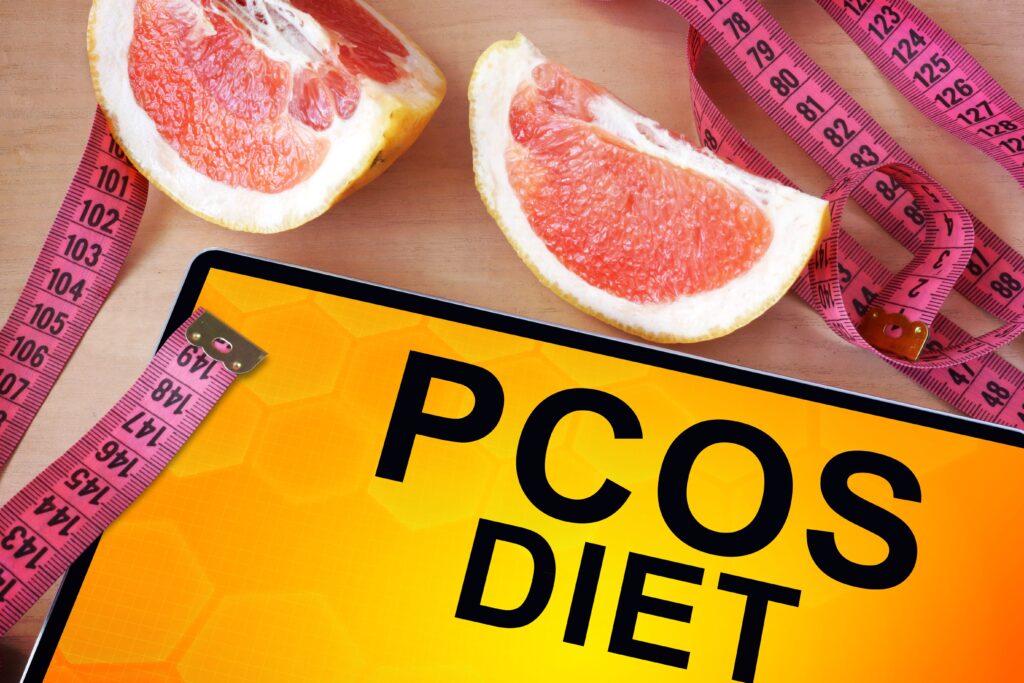Polycystic Ovarian Disease or PCOD is one of the lifestyle diseases that are now common among women today. If not treated properly, it could even lead to infertility in women. Hormonal imbalance and genetics are the two important factors that are responsible for PCOD. The modern lifestyle is the main reason for this disease or condition. Poor food habits and lack of exercise are some of the many important reasons for the development of this condition in women.
What is Polycystic Ovarian Disease?
Polycystic ovarian disease is caused by Hormonal imbalance in women which results in a disruptive menstrual cycle. In a woman with PCOD, ovaries produce immature or partially mature eggs. These immature eggs could gradually transform into cysts which again complicates the condition. PCOD causes the enlargement of ovaries. Normally, the ovaries produce the male hormone Androgen in a small amount. But in a woman with PCOD, Androgen is produced at an excess amount which results in excess hair loss like in males, abdominal weight gain, irregular periods, and in extreme cases infertility.
How is PCOD different from PCOS?
Polycystic ovarian diseases and Polycystic Ovarian syndrome are two separate conditions. People often mistake PCOS for PCOD. But PCOS is a comparatively extreme condition where medical attention is immediately needed. PCOD is the production of immature or partially matured eggs from ovaries caused due to hormonal imbalance. But PCOS is the condition where androgen is produced at a very excess level which results in the transformation of these partially matured or immature eggs into cysts in ovaries. The main difference between the two is that in PCOD, these cysts are not released outside the ovaries, but formed only on the inside of the ovaries. But in PCOS, the cysts are released outside the ovaries which makes the condition worsen.
Signs and symptoms of PCOD
The body warns us by giving certain signs and symbols about any abnormalities occurring inside. Following are some of the signs and symbols of PCOD;
- Weight gain
- Irregular menstrual cycle
- Hair loss
- High level of male hormones
- Acne
- Baldness
- Pelvic Pain
- Mood swings
- Darkening of armpits and neck
- Unwanted facial hair
PCOD as a lifestyle disease
PCOD is arguably one of the most common conditions found in women of the modern era. Changing lifestyle is essentially one of the foremost for this development. Stressful hectic days are another prominent reason for this condition. It is important to put a stop to this hectic and stressful life and irregular and unhealthy food habits.

Certain arenas in life must be changed for a healthy lifestyle. The following are some of the areas where women need to bring change;
1. Food habits: Instead of eating junk foods, eat healthy food like fruits, vegetables, and grains. Exclude the intake of meat especially broiler chicken. The hormones injected in the broiler chickens result in hormonal imbalance in the body which again results in PCOD.
2. Exercise regularly: Exercising is the best treatment for PCOD. Reducing body weight is one of the primary treatments for PCOD. Lack of exercise results in hormonal and metabolic imbalances which trigger conditions like insulin resistance which in turn causes diabetes.
3. Drink water: Drink plenty of water. It will help in keeping your body hydrated and also stimulates weight loss. So keep your body always hydrated by drinking plenty of water. Most importantly avoid carbonated drinks.
4. Get enough sleep: Sleep disorder is one of the main reasons for PCOD. Make sure to get enough sleep. A person needs at least 6 hours of sleep daily.
5. Quit smoking and drinking: Smoking and alcohol consumption triggers hormonal imbalance, which results in conditions like PCOD. So quit drinking and smoking now.

Treatment method of PCOD
Since it is more of a lifestyle disease, the patient herself can alone change the condition. Changing food habits and doing exercises regularly are the primary things to do to treat PCOD with medical attention. In some cases, medications are provided to control the hormonal imbalance. But in extreme cases, even surgeries are needed.
Our health is our responsibility. If we change our routines, we can get rid of many body conditions and diseases. Consult a doctor, whenever you notice changes in your body. Keep this in mind ‘prevention is always better than the cure.’



